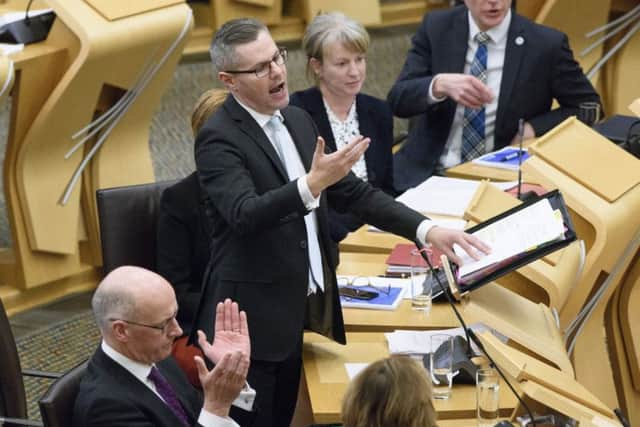David Bell: Tax re-jig brings modest returns but rich in symbolism
• READ MORE: Scottish Budget 2017: Income tax to be increased
The Fiscal Commission’s forecasts do not paint a pretty picture of the Scottish economy. Economic growth in 2018 is expected to be only 0.7 per cent, substantially below the long-run average of two per cent. It highlights a number of constraints including the uncertainty caused by Brexit, slow productivity growth and also the beginning of a decline in the “working age” population as the baby-boomers increasingly move into retirement.
Advertisement
Hide AdAdvertisement
Hide AdAgainst this background, Mr Mackay chose to be very cautious in the exercise of his new powers. He will perhaps wish to be remembered for introducing the Scottish “loop” whereby the low paid in Scotland pay less income tax than the low paid in the rest of the UK, whereas better off Scots will pay more tax. So the Scottish tax system will be more progressive in 2018-19 than in the rest of the UK.


Yet the extra revenue from this rejigging of tax rates and bands is expected to be a very modest £164 million. This only amounts to around 1.4 per cent of total income tax revenue and amounts to less than half of the extra spending that is being allocated to the health service in 2018-19. Part of the reason that the extra tax will not generate much revenue is that the Fiscal Commission have assumed that some higher earners will find ways of avoiding the higher rates of income tax in Scotland. The Fiscal Commission has judged that these mechanisms will cut Scotland’s extra income tax revenue from £215m to £164m. Almost 25 per cent of the extra revenue will be lost.
Estimates of the effects of changing Scotland’s income tax rates are largely guesswork. There is no history from which to draw plausible evidence. Yet another imponderable, how many businesses are deterred from investment in Scotland by the differences in its tax structures will be the most difficult to pin down.
Yet even though the changes in income tax are modest, they have considerable symbolic importance, marking an important fork in the road for tax policy north and south of the border. The Scottish Government is clearly taking a “wait and see” approach. There will be many who argue that it should have been bolder and hit the rich harder. Yet this course of action makes no sense if it fails to raise significant amounts of revenue.